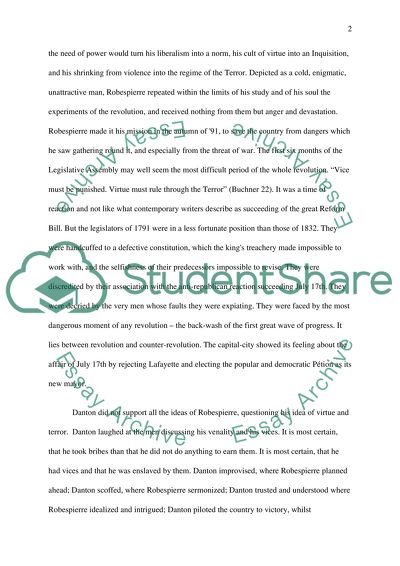Cite this document
(“Danton's Death Book by Georg Buchner Essay Example | Topics and Well Written Essays - 1250 words”, n.d.)
Retrieved from https://studentshare.org/literature/1510398-dantons-death-book-by-georg-buchner
Retrieved from https://studentshare.org/literature/1510398-dantons-death-book-by-georg-buchner
(Danton'S Death Book by Georg Buchner Essay Example | Topics and Well Written Essays - 1250 Words)
https://studentshare.org/literature/1510398-dantons-death-book-by-georg-buchner.
https://studentshare.org/literature/1510398-dantons-death-book-by-georg-buchner.
“Danton'S Death Book by Georg Buchner Essay Example | Topics and Well Written Essays - 1250 Words”, n.d. https://studentshare.org/literature/1510398-dantons-death-book-by-georg-buchner.


